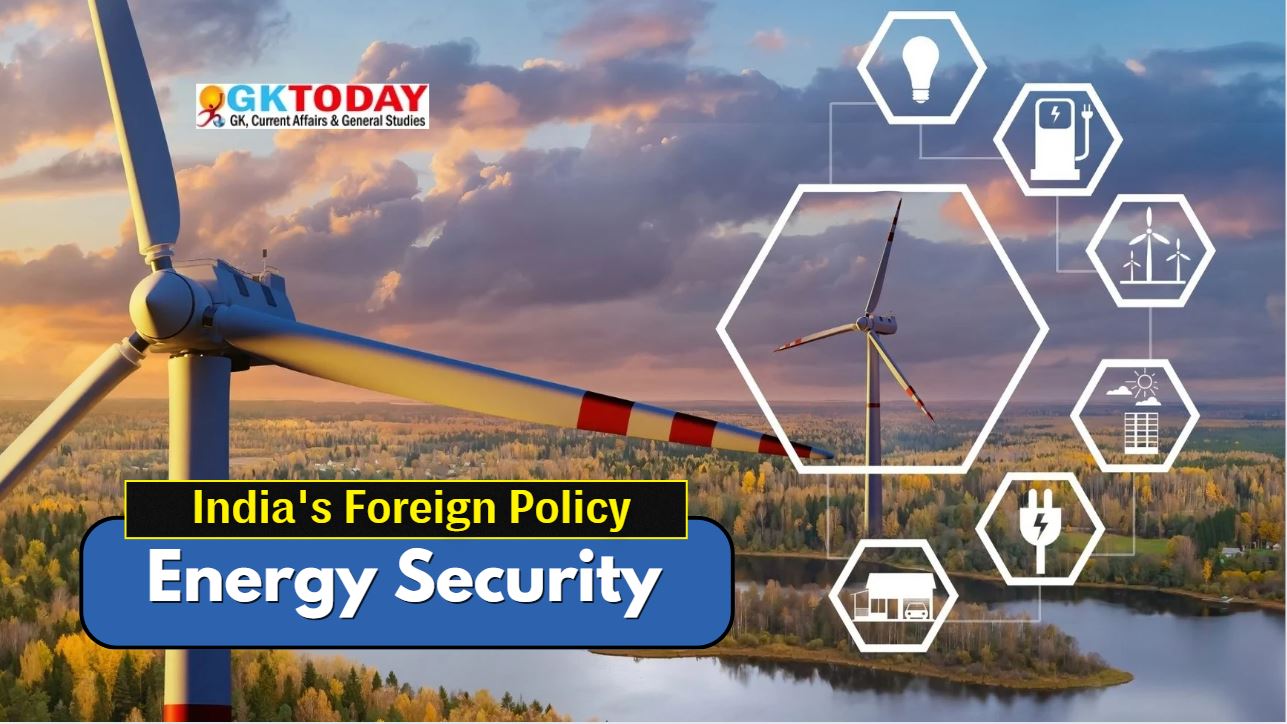Energy Security in India’s Foreign Policy – UGC-NTA NET Political Science
Energy security is a critical aspect of India’s foreign policy, reflecting the nation’s need for a stable and reliable energy supply. This encompasses the uninterrupted availability of energy sources at affordable prices. Energy security involves protecting energy infrastructure and diversifying energy supply sources.
Definition of Energy Security
Energy security refers to the ability of a nation to ensure the availability of energy resources. It involves several key elements:
- Uninterrupted availability of energy sources
- Affordability of energy
- Protection of energy infrastructure
- Diversification of energy supply sources
Importance of Energy Security
Energy security is vital for several reasons:
- Economic Growth: Energy is essential for industrial growth and overall economic development. A stable energy supply supports manufacturing and services.
- National Security: Dependence on foreign energy sources can create vulnerabilities, affecting foreign policy and national security.
- Sustainable Development: Energy security ensures access to energy while promoting environmental sustainability.
Components of Energy Security
Energy security comprises several components:
- Supply Security: Ensuring a stable and reliable energy supply is paramount.
- Demand Security: Managing energy consumption and implementing demand-side measures is crucial.
- Infrastructure Security: Protecting energy infrastructure from both physical and cyber threats is essential.
- Environmental Security: Balancing energy needs with environmental protection is a growing concern.
Global Energy Landscape
The global energy landscape is diverse and constantly changing:
- Fossil Fuels: Oil, natural gas, and coal remain dominant energy sources worldwide.
- Renewable Energy: There is an increasing focus on solar, wind, hydro, and bioenergy as alternatives.
- Nuclear Energy: Seen as a low-carbon option, but it faces challenges regarding safety and waste disposal.
India’s Energy Security Challenges
India faces several challenges regarding energy security:
- Dependence on Imports: Over 80% of crude oil and 45% of natural gas is imported, making India vulnerable to global market fluctuations.
- Geopolitical Risks: Instability in key oil-producing regions, such as the Middle East and Africa, poses risks to supply.
- Infrastructure Deficiencies: There is a pressing need for improved energy infrastructure and technology.
- Energy Pricing: Fluctuations in global energy prices can impact the Indian economy.
Government Initiatives
The Government of India has launched several initiatives to boost energy security:
- National Energy Policy: Aims to ensure energy access, sustainability, and security for all citizens.
- Renewable Energy Targets: Commitment to achieve 175 GW of renewable energy capacity by 2022 and 450 GW by 2030.
- Strategic Petroleum Reserves: Establishing reserves to mitigate supply disruptions during crises.
- International Cooperation: Engaging in energy diplomacy with countries like Russia, the US, and Middle Eastern nations to secure energy supplies.
Regional Cooperation
Regional cooperation plays a vital role in enhancing energy security:
- SAARC Energy Cooperation: Initiatives aimed at increasing energy trade and cooperation among South Asian countries.
- BIMSTEC: Focuses on energy security and infrastructure development among member states.
Role of Technology
Technological advancements are crucial for improving energy security:
- Smart Grids: Enhance the efficiency and reliability of energy distribution systems.
- Energy Storage Solutions: Development of battery technologies facilitates the integration of renewable energy.
- Digitalization: Utilising data analytics improves energy management and efficiency.
Environmental Considerations
Energy security must consider environmental impacts:
- Climate Change: Energy production and consumption contribute to global warming.
- Sustainable Practices: Transitioning towards cleaner energy sources and technologies is essential for future sustainability.
Future Prospects
The future of energy security in India is focused on:
- Energy Transition: A shift towards a low-carbon economy and increased reliance on renewable energy sources.
- Investment in R&D: Emphasis on innovation in energy technologies to enhance efficiency and sustainability.
- Policy Frameworks: The need for robust policies to ensure energy security while addressing climate change challenges.
Key International Organizations
Several international organizations play a vital role in energy security:
- International Energy Agency (IEA): Provides policy advice and data on energy security globally.
- OPEC: Influences global oil prices and supply through its member states.
- International Renewable Energy Agency (IRENA): Promotes the adoption of renewable energy worldwide.
Case Studies
Case studies illustrate India’s approach to energy security:
- India’s Oil Diplomacy: Engagement with oil-rich nations to secure stable energy supplies.
- Renewable Energy Initiatives: Development of solar parks and wind energy projects across the country.
Thus, energy security is a multifaceted challenge that influences India’s foreign policy. By addressing its energy needs through strategic initiatives, technological advancements, and international cooperation, India aims to secure a sustainable energy future for its citizens.


